Is All Art Political?
Art can either open people's eyes or close them. Almost all art in mainstream culture tends to close them—either by normalizing the madness or by numbing people to its discomfort.
The awakening we've experienced over the past year has been nothing short of extraordinary. It's both fascinating and unsettling to realize how many moral and historical distortions were always around us, unnoticed while we were moving through life on autopilot.
I was never naive or gullible about the world and its politics. Coming from the Balkans—a region marked by violence and suffering, where grief has deep roots due to countless conflicts, empires, rulers, and occupations—politics is ingrained in you from birth. Knowing your history is essential for survival. Or countless fiery debates you’ll have for the rest of your life.
When I landed at an American college, one of the courses awaiting me in my required major was World Affairs—not that I needed outside help to understand global dynamics. I've always had a solid grasp of politics. But what I hadn't fully realized was how culture and sports are often exploited to advance political agendas.
Well, now I do.
I realized that using sports to divert attention from political controversies is quite on the nose, very obvious—anything but subtle. In contrast, using culture to achieve the same goal is far more nuanced.
For example, in sports, UEFA, a Union of European Football Associations will include Israel in its Association and allow it to compete while Israel isn’t a part of Europe. I once asked ChatGPT why that is. This is the answer I got:
“The inclusion of Israel in UEFA has indeed been a topic of discussion and debate. Some critics argue that sporting and cultural events can be used to project a positive image or divert attention from political controversies, such as concerns about apartheid policies. The question of including a country in sporting events involves complex ethical considerations. It often sparks debates about whether engagement through sports can help promote positive change or whether inadvertently legitimizes oppressive actions. Different people and organizations hold varying views on this matter, reflecting the complexity of balancing sports, politics, and human rights.”
Those in power will quite literally shove a state that is not in Europe to compete in European Championships and Tournaments to project a positive image or divert attention from political controversies, such as concerns about apartheid policies. No rules, no sense, no logic.
Which takes me to culture.
How did we all miss Sacha Baron Cohen subtly using comedy to spread islamophobia for decades?
Ghada Chehade wrote an essay ‘The problem with Borat’, where she says:
“While the 2006 film has received coverage and praise for revealing the racism of Americans, very few people are asking whether Cohen’s caricature of a savage, homophobic, misogynist, racist, and hard core Jew-hating Muslim is not actually a form of anti-Muslim racism. To be characterized as any of the above is a form of discrimination, and watching this film it is hard not to walk away wondering why funny man Cohen feels the need to depict a Muslim character in such a vulgar and deplorable light.”
This is by no means accidental. Mintpress delved deeper into Cohen’s Zionism and—this time, not so subtle justification of the genocide in Gaza:
“Cohen has been playing an active role behind the scenes in the genocide. In November 2023, he was among several high-profile figures who lobbied TikTok in private to block content and comments critical of Israel. In September 2020, he suspended his Instagram account to protest purported “hate speech” on the platform and Facebook.
Cohen has, in recent years, significantly upped the ante of his public Zionist activism under the aegis of fighting anti-Semitism. He has claimed his “comedy” output, often coordinated with the CIA and Pentagon, is concerned with the same objective. This work almost universally features racist, crude stereotypes of Muslims, whom he portrays wearing makeup and wigs reminiscent of blackface. One might reasonably ask whether his true purpose all along has been to dehumanize Muslims everywhere in order to justify Israel’s genocide.”
Have you ever come across something or someone precisely when you were ready to receive the message it provides? Of course you did, it happens to all of us. It used to happen to me constantly with people, but recently it has been more often with art. It lands in my lap exactly when I need it, whether it’s movies, series, music, or visual and performance art.
Untogether.
For the past year, with everything I read or watched, I immediately questioned who put it there for me to consume. I analyze every historical event presented to me, every beloved public figure or politician—what’s the real story? Is that charming personality just an act? Did that historic event really unfold the way it’s told? Is everything we consume just part of a larger psyop?
Amid this growing distrust, my nervous system craves a break from the relentless flow of information. I call it a mental massage, especially after feeling so helpless watching the daily visuals of slaughtered children—images my government insists I must accept as normal.
In these moments, I need to escape reality and lose myself in another story for a few hours. Whether it's a film, a series, or a book, I need something that can fully draw me into its narrative.
It’s hard, I know. It’s difficult to get pulled into fiction when reality is so morbid. But I’ve found that stepping away helps me return with a clearer focus. I’ve also found that I can only take romance right now. Everything else feels so illusory. Superheros? Where are they in real life, allowing all this death? Slapstick comedy? Pass. Action movies based on American Heros fixing the world? Bitch, please.
But romance?
No matter what happens in the world, love is the only thing that’s never an illusion. Even the love you see on your screen; someone wrote it based on their own lived experience.
Amazon Prime has been suggesting this movie to me for weeks. Untogether, written and directed by Emma Forrest. Starring Jamie Dornan and Jemima Kirke. I kept skipping it mainly because my body rejects all the plots taking place in in Los Angeles. I’m still recovering from my own body spending nine years in Los Angeles. Also, I’m still having traumas from Jemima Kirke’s character in Girls, and the whole Girls fiasco in general. I can’t possibly watch a romance featuring Jemima Kirke, I close my eyes and all I see is Jessa. It’s unholy.
Jamie Dornan, however, grew on me. There’s something soothing about Jamie Dornan’s Northern Irishness, his face when he has a beard on, and the way his body’s just how you imagined the guy next to you should feel; I can’t think of anyone else at this moment who provokes both fire and comfort sensation.
That and Jessa? As I said, it feels unholy.
You watch it when it’s time. And I did. And that movie did my head in. Blew me away, and not in the way you might think.
Come in, and close the door.
The movie follows a few characters but the story is based around two people who have a one-night stand that unwillingly turns into something else. PS: Jemima Kirke and Jamie Dornan worked wonders together. I saw no Jessa. He’s a doctor who wrote a personal story that got him famous. She’s a writer who wrote a hit when she was 23 and hasn’t written or published anything since.
It hurts me to say, there are some epic dialogues in this movie:
- He’s not a writer. He’s a doctor.
- He doesn’t slave over sentences.
- He’s just a chancer who got lucky.
- Fuck me, you’re in love with him. And jealous of him as well.
- There is no true love. Only a finely tuned jealousy.
Yes, the ‘There is no true love. Just a finely tuned jealousy” is a lyric from the song ‘Life Becoming a Landslide’ by Manic Street Preachers, but it’s pretty artful placing it in the context of this particular plot.
“He doesn’t slave over sentences”—that hit home like nothing else; I can’t convey the brilliance of that sentence if you aren’t someone who writes. I have never met a phrase that explained the agony of relentless struggle with a single sentence or paragraph, sometimes for days, or weeks, such as—slave over sentences.
There are so many great words put together here — Emma Forrest, the writer, flexed:
- Does he fuck heroically?
- All one-night stands are acts of bravery.
- Or defeat.
Enter trouble.
It completely floors me—the realization over the past 11 months that a brilliant, educated, and successful people can fall into the trap of tribalism, Zionism, a sense of supremacy over 'the other’, and an utterly mind-boggling indifference to people being slaughtered for their “safety”.
If you think I came out of left field with this one, pivoting from a romantic storyline to the rubble of Gaza, I didn’t. The writer did. All I signed up for was a mindless love story—or at least a lust story, as those often hit closer to home than the former.
Jemima Kirke’s character is telling her sister about Jamie Dornan’s character, a doctor-turned-writer with whom she just had a one-night stand:
- So, he fell in love with a Palestinian woman when he was a volunteer doctor in Gaza, and then she ended up being killed.
- I can see how that would sell a million copies.
- Mm, two.
She ended up being killed.
Killed by who? Until now, we lived in a world where people casually write about people being killed in Gaza like it’s a natural disaster that just won’t quit. This movie was released in 2018, written some years before that, I suppose. How did we allow a reality where people casually write about death in one strip of land in this world, and no one ever raised questions, wait—killed by WHO? Killed WHY? Why is a group of people constantly killed somewhere?
How is it all right to create a plot around a man falling in love with a woman in Gaza and then casually add “she got killed” like some decades-long natural disaster befalls that place, following up with a commentary, ”I can see how that would sell a million copies”—like a whole nation being exterminated by an Israeli army and illegal settlers is a convenient movie plot that adds spice to a one-night-stand turned love story—story?
Untogether is written and directed by Emma Forrest. Emma is a British American novelist, screenwriter, and a first-time film director.
The other day, I read a great line by always incisive Caitlin Johnstone:
“All art is political. It either opposes the madness of the status quo, supports it, or distracts from it.”
Emma Forrest is also Jewish. I won’t make a judgment on what side of the spectrum her views of the 76-year devastation of the Palestinian people stand, I will let Emma’s words explain to us all which spectrum that is. On November 7th 2023, Emma shared a six-page post on her Instagram page, saying:
“Today is the anniversary of the October 7th massacre. Today, if they are still alive, the hostages— from babies to elderly Holocaust survivors, to young women who had been visibly raped until their trackpants were soaked in blood—have been held captive for a month. Hamas, who are deeply PR savvy, performed such medieval torture on their victims that, even though they themselves recorded and distributed videos of it, the mind cannot process it, and therefore easy for people who don’t like Jews to say it was made up.”
A woman named Aisling McGeown commented on Emma’s post, saying:
“If we offered Palestine October 7th in exchange for what they have been through they would take it any day of the week. None of it is good and every single person is one too many but let’s have a five-page nuance dedication to the Palestinian lives and the children. Jewish and Palestinian children. The children. #ceasefire”
Emma responded to Aisling, saying:
“HUGE apologies for having the temerity to write about my lived experience on my page.”
Her lived experience? Lived experience? Does she live in Gaza? West Bank? Or London and Los Angeles? Who on Earth can claim lived experience comparable to the injustice, devastation, death, carnage, and utter disregard for human life that the Palestinian people have endured for eight decades?
Is Emma’s art political? Does it oppose the madness of the status quo, support it, or distract from it?
You be the judge.
As the movie Untogether progresses, we are introduced to a kind Rabbi, played by Billy Crystal, who is raising money for Syrian refugees within his congregation:
“I’d like to end tonight by reminding you that at the end of the month we have our rally for our Syrian refugees. I’d like you all to be there because somebody was there for us when we came. Somebody was there for your grandfather when he came. Somebody was there for your great-grandfather when he came. Somebody was there. So be there for them.”
Emma clearly cares about Syrian refugees. What about 6 million Palestinian refugees created by the state of Israel, that have no right of return to their homeland? How can anyone connected to Israel not feel uneasy about millions of people being killed and ethnically cleansed from their homeland so that space can be made for a Jewish ethnostate?
Maybe Emma cares about all these things, but why isn’t she making art about the plight of Palestinian people? Israeli magazine Haaretz wrote a feature about Emma’s movie, calling it a Remarkably Jewish Indie Film.
Her desensitized way of molding this storyline is astounding. The dialogue where a Rabbi played by Billy Crystal tells a story about why he became an activist who cares about the plight of others less fortunate is appalling:
- When I was 13, we were living on the Lower East Side of New York City, and two floors above us was a young man named Mickey Schwerner.
- Mickey and his wife Rita lived two floors above us, and he was older than I was but he was very good to me in a way hat older boys are not ‘cause they dn’t like to be seen with the little kids. And they were activists.
- They worked for CORE, Congress of Racial Equality
- They were very brave people. They were Freedom Riders in the truest sense. They would go down South and register African Americans to vote.
- They would boycott businesses until they desegregated.
- They were very inspiring young people, and it was Mickey who taught me about Dr. King. And I read everything I could. And I listened to him whenever I could. And I just was awestruck.
How can a person supporting Israel write this? How can anyone sensible that cares about other human beings, besides their own—talk about boycotting businesses in the South “until they segregated” while not supporting the Boycott, Divestment, and Sanctions of the businesses supporting and funding the Israeli Apartheid and military occupation of Palestinian people?
Emma’s disconnect is palpable:
- So then what happened with Mickey Jewinowitz?
- Mickey was murdered in 1964 in Mississippi, along with two fellow civil rights workers, James Chaney, Andrew Goodman. They were beaten, shot to death, and buried by the members of the KKK. Long time ago. But that’s what got me started.
What about the Israeli army that beats, shoots to death, and buries children under the rubble?
What stuns me the most is the fact we never even noticed these things before Israel launched their genocidal campaign in Gaza. How many filmmakers did this? How many screenwriters did this? Wrote lines and created art depicting Jewish people as these justice warriors, morally sound folk who are so sensitive to others’ plight for justice and self-determination while not recognizing Palestinian people should also have all those rights?
In contrast, many Jewish artists have done a great deal for the plight of the Palestinian people, the most recent being Jonathan Glazer, with his Oscar-winning film and his even more legendary acceptance speech. Besides artists, Jewish activists have played the most pivotal role in denouncing the occupation and the genocide of the Palestinian people in their name.
Decide if Emma Forrest is one of the people who understands, cares, or wants to see the end to the dehumanization of the Palestinians.
While researching this novelist, screenwriter, and first-time director, I couldn’t shake the feeling that I had seen this woman before. Her name and face were familiar. Then, it hit me: back in 2009, in Los Angeles, Emma Forrest met and dated Colin Farrell for about a year. I remember those headlines and paparazzi photos in gossip magazines. He left her, got another woman pregnant instantly, and Emma wrote a memoir documenting that period of her life.
Floored me.
This is an excerpt from Emma Forrest's memoir, Your Voice In My Head:
“It has been five years since I've self-harmed when, at a dinner in LA, I am introduced to a man with long, flowing hair who is wearing a keffiyeh. HE LOOKS LIKE THE WORLD’S CAMPEST TERRORIST, but he's actually a movie star with a storied reputation. In the candle-lit garden, we sit next to each other and talk, and he admits later that every single thing he tells me is intended to translate as, "I'm not like you've heard I am." It works.”
Colin Farrell spent decades of his life wrapped in a Palestinian keffiyeh. It’s only natural showcasing solidarity with the Palestinian people would be important to him—he’s Irish.

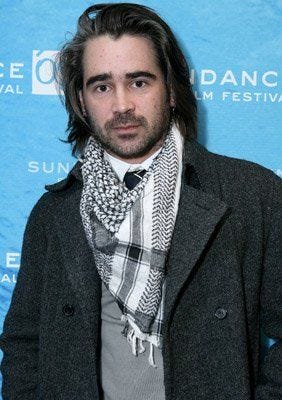

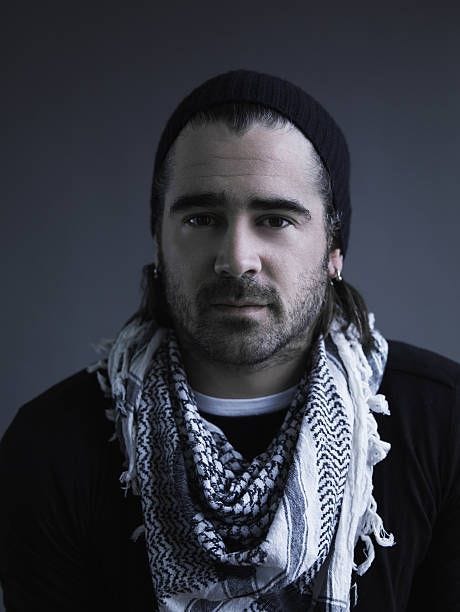

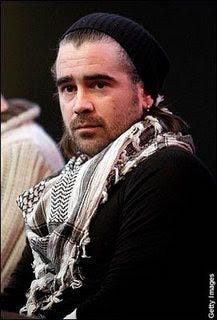

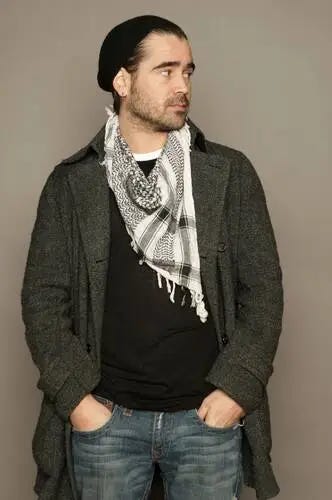
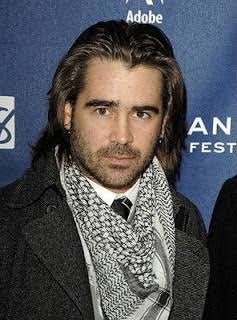
Emma Forrest, a woman who met him on a night he wore a Palestinian cultural symbol, a traditional garment that every culture has, common to their customs—called him “the world’s campest terrorist”. Emma Forrest associates a Palestinian traditional garment with being a terrorist. She is so emboldened and protected in her dehumanization of the Palestinian people that she would include that sentence in her memoir. How callous is this woman, using the most destructive word one can attribute to a human being?
I scoured the internet and couldn’t find a single article or even a Reddit thread condemning her blatant Islamophobia.
Do you still think all art isn’t political?
Or has art like this created a sentiment where, today, Gaza can be bombed into oblivion; 180,000 + people killed, wounded, or buried under the rubble—and people would justify it? After all, do the “world’s campest terrorists” deserve to live?
Creating a film as a tribute to her Jewishness, while calling one of the world’s most famous actors a terrorist because he showed up with a keffiyeh— is Emma Forrest’s art meant to convince us of something?
You be the judge.
All art either helps open people’s eyes or helps close them. Almost all art in mainstream culture helps close them — either by normalizing and celebrating the madness of this civilization, or by numbing people to the discomfort of it. This is not just political, it’s on the front line of politics. — Caitlin Johnstone
You can watch Untogether here.


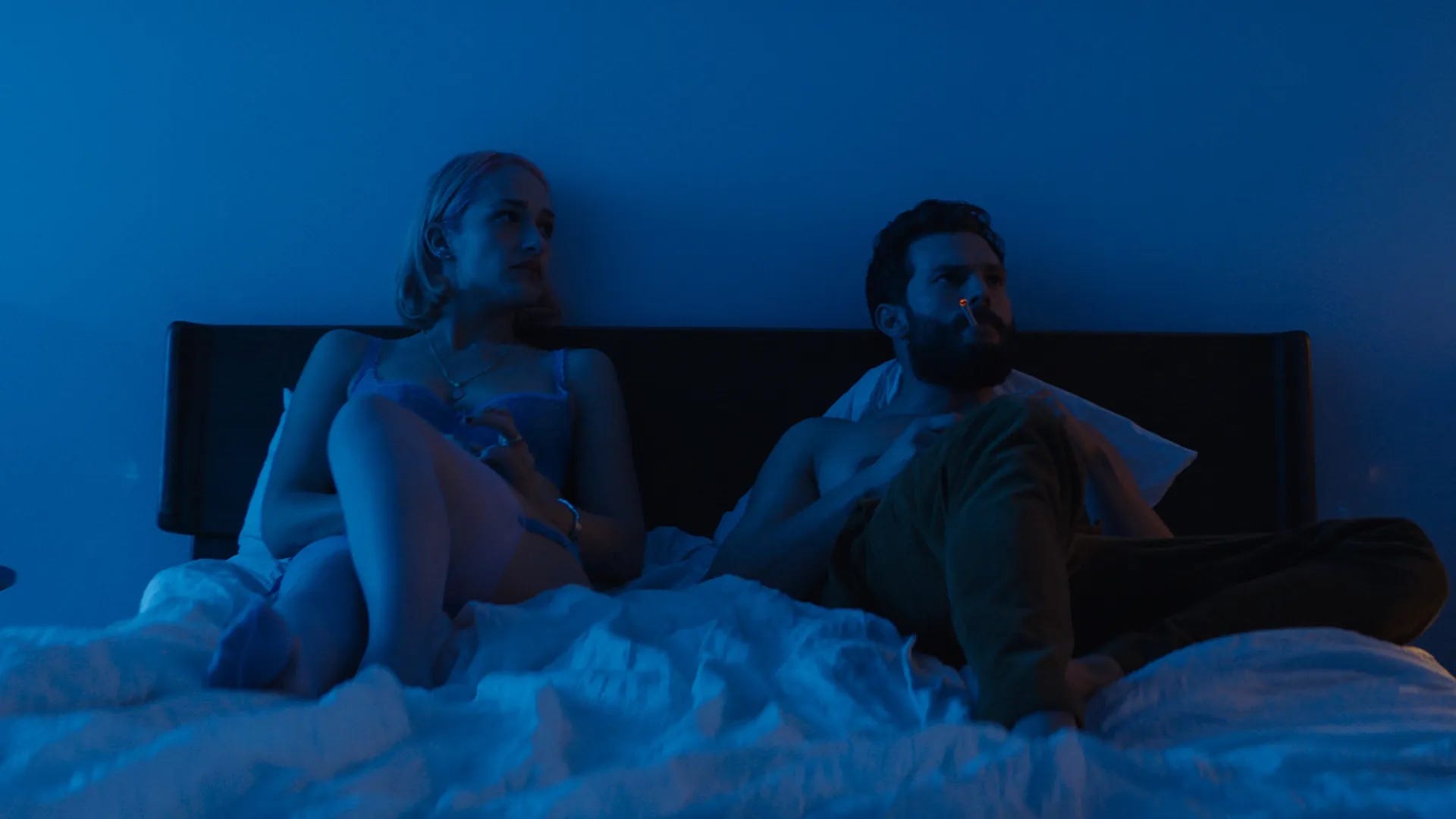

I thoroughly enjoyed reading your article—not just for its insightful content and eloquent style, but for the resonance it stirred within me. It evoked that moment of recognition, where I felt, ‘Yes, exactly! I’m not the only one who sees this’
All what Dana wrote. Brilliant article. Thank you ❤️.